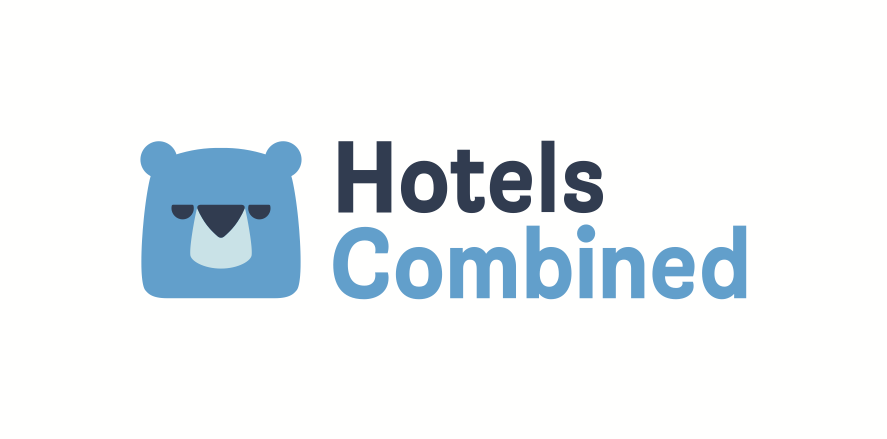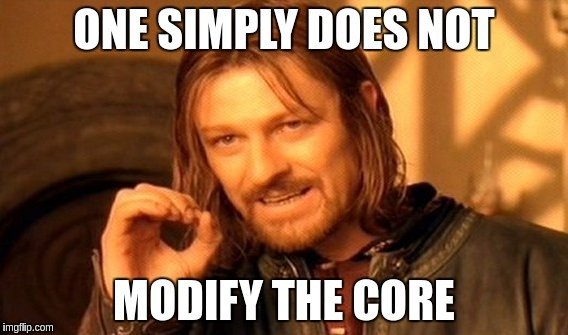Captain Hook
the Right Way to Extend WordPress
Arūnas Liuiza
- Allows people to experience the world through travel and dining.
- Part of Booking Holdings.
- One of the engineering centers - in Kaunas.








Full-Stack PHP Engineer
kayak.com/careers/kaunas

/whois
WordPress
WordPress
- A free and open-source content management system (CMS) based on PHP & MySQL.
- Created in 2003
- Licensed under GPL v2 license
- The most popular CMS in the world (w3techs).
- 33.5% of the internet*
- 60.4% of CMS*
- Joomla 2.9% Drupal - 1.9%
* - among top 10 million sites
in Alexa ranking
Used by
- In Lithuania:
-
ktu.edu, vdu.lt, kaunas.lt, naujienos.lt, moki-vezi.lt
...
-
ktu.edu, vdu.lt, kaunas.lt, naujienos.lt, moki-vezi.lt
- Worldwide:
.org vs .com
WordPress.org
- The Open Source project
- Dowladable, self-hosetd
- Plugin repository
- Theme repository
- Support forums
- Documentation
- ....
WordPress.com
- Hosted service
- Free layer + paid plans
- Akismet
- Jetpack
- Calypso
- ...
Why WordPress?
- Stability and compatibility
- Safe and frequent updates
- Safe and frequent updates
- Big community
- 967 WordCamps in 72 cities in 6 continents
- 700+ regular local Meetups
- Flexibility and extendability
- 54,971 free plugins
- 7,080 free themes
A brief history
b2/cafelog
WordPress
b2++
The year was 2003
b2evolution
0.7 - May 27, 2003

1.2 - May, 2004

-
Plugins
- Moveable Type changes licence
1.5 - February, 2005
- Static Pages
- Comment moderation
- Themes
- Kubrik

2.0 - December, 2005
- New Admin panel
- DHTML
- DHTML
- Akismet
- WP-DB-Backup
- functions.php

2008
- Shortcodes
- Plugin Installer
- One-click updates
- Admin panel UI
- Child themes

3.0 - June 17, 2010
- Custom post types
- Custom taxonomies
- Menu management
- WordPress MU merge
- One-click updates
- Twenty Ten theme

2011 - 2013
-
2011
- Post Formats
- Admin Bar
-
2012
- Theme Customizer
- Theme Previews
- New Media Manager
-
2013
- Most popular CMS
-
3.7 - automatic updates
- 3.8 - new admin interface
- Most popular CMS
2014 - 2016
-
2014
- 3.9 - Post Editor updates
- non-English downloads surpassed English
-
2015
- Localization
- Emojis !!!
-
2016
- "Shiny" updates
- Custom CSS
- HTTPS
- 4.7 - REST API
2017 - 2018
-
2017
- 4.8 - 4.9
- New Widgets
- Gutenberg the plugin
-
2018
- 5.0 - Gutenberg in Core
I want to change
this one
simple thing(tm)...

General Rule
- If there is a possibility some particular piece of code will get an update from the original author, you should not touch it.
In the ideal world
- Do not modify WordPress Themes
- Use Child Themes
- Use Child Themes
- Do not modify WordPress Plugins
- Extend them via action and filter hooks
- Extend them via action and filter hooks
- Do not modify WordPress Core
- Extend it via action and filter hooks
Where do I put my
awesome
custom code?
Places for Custom Code
- Child theme;
-
functions.php;
- "My Custom Functions" plugin;
- Custom plugin;
/whois a child theme?
- It's a WP theme, based on another (parent) theme;
- You can change only the templates that You need to change;
- You can safely update parent theme;
- Introduced in WordPress ~2.7
/whois functions.php
- A file in WordPress theme, where You can* put custom code;
- Loaded with every page load;
- Very good for small presentation-centric/theme-specific snippets;
- Changes will go away if You ever change Your theme;
- 5.000 lines of code and 56 includes in functions.php
- a REALLY bad idea
/whois My Custom Functions?
-
A plugin in WordPress.org repository;
-
Allows* You to enter custom code via WP Admin dashboard;
- Your code stays active even when You switch themes;
- Uses eval() to run the custom code - a major security issue.
/whois a Custom Plugin
- A plugin You wrote ;)
- In it's basic form - just a .php file in wp-content/plugins;
- Needs a Plugin Header comment at the top of the file;
<?php
/*
Plugin Name: Health Check
Plugin URI: https://wordpress.org/plugins/health-check/
Description: Checks the health of your WordPress install
Version: 0.1.0
Author: The Health Check Team
Author URI: http://health-check-team.example.com
Text Domain: health-check
Domain Path: /languages
*/
?>So, how do I
extend
WordPress?
Ways to Extend WordPress
-
Pluggable functions;
-
Action hooks;
- Filter hooks;
/whois a pluggable function?
- A WordPress function that can be overridden by a plugin;
- Can be found in wp-includes/pluggable.php;
- Just define a function with the same name in Your plugin;
- Warning: some other plugin might do that before You do - potential for compatibility issues;
/whois a hook?
Design patterns


MVC
Event-driven
images by Tom McFarlin
So, /whois a hook?
- Hooks are the way WordPress allows 3rd party-developers to extend their event-driven architecture.
- Basically, hooks allow 3rd party developers to hook their own code to various events, that happen during WordPress pageload.
- WordPress hooks come in two different flavors - action hooks and filter hooks.
/whois an action hook?
Actions are points in the WordPress lifecycle that allow you to add, remove, or modify certain functionality.
- Tom McFarlin
You, as a developer, can hook a custom function to be executed at that particular point.
<?php add_action( 'wp_head', 'my_function' ); ?>This line will execute my_function when WordPress is printing it's code in the <head> part of
HTML document.
An Example
<?php
add_action( 'wp_head', 'my_function' );
function my_function() {
echo '<!-- hello! -->';
}
?>The above code will print a '<!-- hello! -->' comment in the <head> part of any WordPress website.
/whois a filter hook?
Filters, on the other hand, are points in the WordPress lifecycle in which you can add, remove, or modify data.
- Tom McFarlin
You, as a developer, can hook a custom function to modify that piece of data.
<?php add_filter( 'the_title', 'title_filter' ); ?>This line will make WordPress to pass article title to title_filter function and use the
return value whenever WordPress
prints an article title.
An Example
<?php
add_filter( 'the_title', 'title_filter' );
function title_filter( $title ) {
$title = $title . ' :)';
return $title;
}
?>The above code will make WordPress display a ':)' at the end of every post/page/menu item title.
Priority
- When You are hooking a function, you can also set it's priority.
- It will control the order of execution.
<?php
add_filter( 'the_title', 'function_1', 10 );
add_filter( 'the_title', 'function_2', 9 );
add_filter( 'the_title', 'function_3', 90 );
?>Functions will be executed in this order: function_2, function_1, function_3
Accepted Arguments
- Some hooks pass additional arguments to the hooked function.
- You can tell how many arguments Your function expects to get.
<?php
add_filter( 'the_title', 'function_1', 10, 2 );
add_filter( 'the_title', 'function_2', 10, 1 );
add_filter( 'the_title', 'function_3', 10 );
?>function_1 will receive 2 arguments (post title and post ID), while function_2 and function_3 will only get post title.
Note: filter functions will always receive one argument.
Where can I hook?
Where can I Hook?
An awesome plugin by John Blackbourn
Top Menu > Hooks
Main action hooks in their execution order;
Together with all the functions that are attached to those hooks;

How can I
trigger
a hook?
Adding Hooks to Your Code
You can also add hooks to Your own code, to make it extendable and/or leverage features of other plugins or WordPress Core.
<?php
// trigger `wp_head` action
do_action( 'wp_head' );
// trigger `the_title` filter
$title = apply_filters( 'the_title', $title, $post_id );
?>Making Your Own Hooks
Finally, You can also create Your own custom hooks, specific to Your code. Just use Your own hook name.
<?php
// trigger `arunas_action` action
do_action( 'arunas_action' );
// trigger `arunas_filter` filter
$data = apply_filters( 'arunas_filter', $data );
?>Recap
-
Do not modify code maintained by other people:
- WordPress Core, themes & plugins.
-
Extend it using:
- Child themes;
- Pluggable functions;
- Action and filter hooks.
- Best place for custom code:
- Child theme for theme-specific code;
- Custom plugin for everything else;
Recap (continued)
- Action hooks allow You to modify functionality;
- Filter hooks allow You to modify data;
- Remember, you might be not the only one hooking in;
- Use hook triggers to make Your own code extendable;
- You can create Your own hooks!
There always is
a hook
for that!

Questions?
Captain Hook - the Right Way to Extend WordPress
By Arūnas Liuiza
Captain Hook - the Right Way to Extend WordPress
- 2,489





